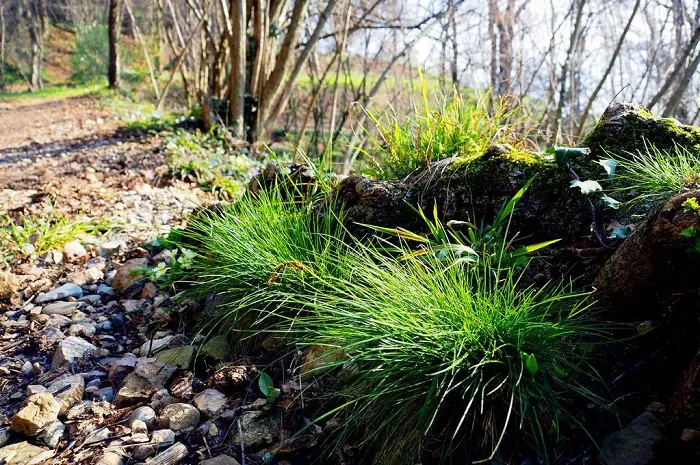Weeds have an extraordinary ability to thrive in damp areas with minimal sunlight. Over time, gravel can accumulate detritus from rainwater, dust, bird droppings, and other elements such as litter and fallen leaves. This creates a fertile breeding ground for weeds. The seeds of weeds that prosper in gravel or on patios are often spread by the wind, animals, or inadvertently hitch a ride on people’s footwear.
Once these seeds find a conducive environment—moist, warm, and humid—they begin to germinate and extend their roots. Bryan, a gardening expert and CEO of GreenPal, shared his preferred methods for dealing with pesky gravel weeds. With 22 years of experience in landscaping, Bryan has developed various techniques for combating weeds in gravelly spots.
For those seeking a natural solution, Bryan suggests using boiling water as a home remedy. He explained, “One method I’ve tested is pouring boiling water on the weeds. The hot water burns the weeds and causes them to wilt and die almost immediately.” Boiling water effectively collapses the plant’s cellular structure, ultimately destroying it right down to the root, according to the Express.
To apply this technique, start by boiling water in a kettle and transport it to the weed-infested gravel area. Wear gloves and exercise caution to avoid scalding yourself. Carefully pour the boiling water directly onto the weeds from a low height to minimize splashing and ensure maximum contact with the unwanted plants.
Once the weeds have withered and appear lifeless, use a screwdriver to loosen their roots before extracting them with a steady hand. If this technique proves ineffective, Bryan recommends resorting to a chemical solution—Roundup.
Roundup, which contains glyphosate, is favored for its “effective” results, according to Bryan. However, he consistently urges caution when using this herbicide. He cites a study from the University of Washington Department of Environmental & Occupational Health Sciences (DEOHS) that links exposure to glyphosate to a 41 percent increased risk of non-Hodgkin lymphoma.


